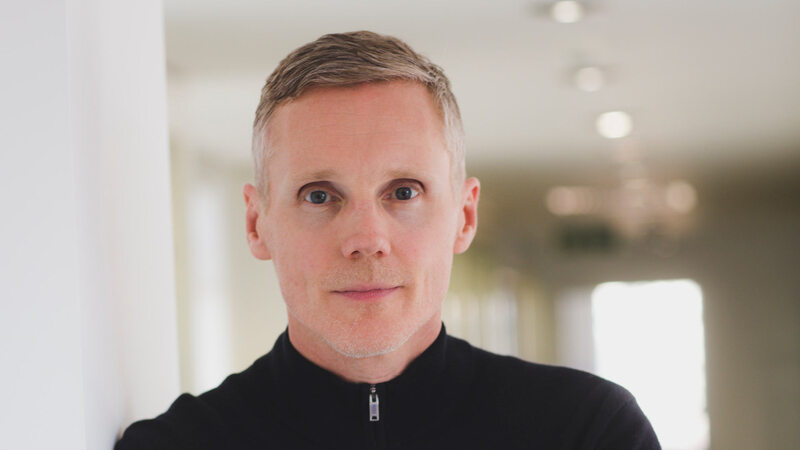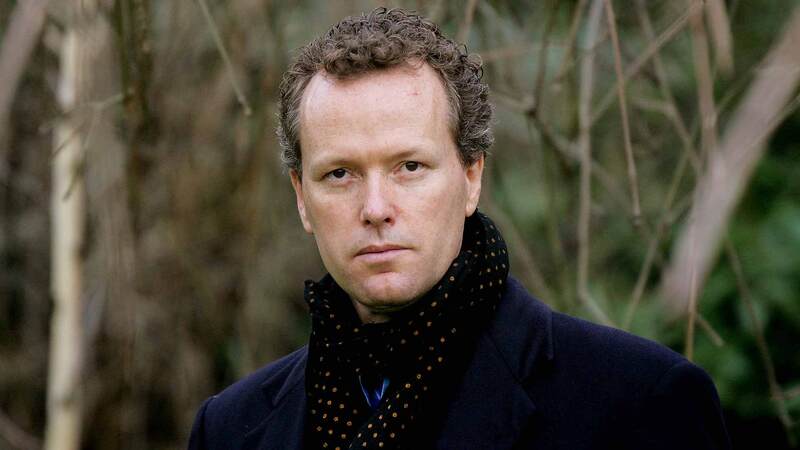You are viewing your 1 free article this month. Login to read more articles.
Today's the day
Q: Your debut novel, Today, is based on real people - Polish-born novelist Joseph Conrad, his family and friends - and the events surrounding his death. Can you tell us about how you came to write about this moment in time?
A: It's the question, isn't it? Where did this book come from? There is a haze of answers I could give you, but really, if I can, I'd winnow it down to two things.
The first is, as you might expect, desperately autobiographical: the book came from the sudden death of my own father in Edinburgh three and a half years ago. I was on the journey up when he died, so arrived in the city early one misty morning and discovered I had to go and see a corpse in a hospital morgue for the first time in my life. And then I found myself placed in a world of policemen knocking on the door and people talking about the postmortem and having to deal with the calls, and watching my mother organise a funeral...and then doing mundane things like throwing out clothes and shoes, or cancelling magazine subscriptions.
So, in the book, I wanted to explore those moments, when someone dies and when everything alters and nothing changes. And to examine the moments of weird hilarity there are - moments of humour and amusement. I wanted to explore real grief in imaginary people, save – in the book – my imaginary people once lived.
The second is more academic. Nearly 10 years ago, I became fascinated by Lilian Hallowes who worked as Conrad's secretary from 1904 until 1924, off and on, and I gave a paper about her at a conference in Amsterdam in 2005. She continued to haunt me. One of Conrad's last letters mentions she'd be there for the weekend I describe in the novel, but nobody mentioned her being there when Conrad died - she next appears, with a wreath, at his funeral. So the book was also my way of answering my own puzzle: what happened to Miss Hallowes when Conrad died?
Q: Why did you choose Lilian as the conduit into the story and not, say, one of Conrad's sons?
A: I've sort of answered that above – but also, I think I do use [Conrad's son] John, as well as his friend Richard Curle as the eyes through which you see the story. I wanted the book to be a sort of chamber-piece, with no hero, no heroine, just a dead man at its centre, like watching the centre of a rippling puddle. Perhaps a little like Kurtz in Heart of Darkness. I wanted to write something that was realistic, which is why there are so many people in such a short book – everything that happens could have happened, and the people who are in a room at a certain point could have been there in historical reality, even if they're only there delivering a tea tray, or waiting to be paid.
[Also] I – bluntly – find women more interesting than men, and if I was aspiring with this book to do anything, it was to do what someone like Colm Toibin does in The South, or Brooklyn (as well as The Master), and using Miss Hallowes also gave me an inside-outsider, someone who was seen as family - she went on two holidays with the Conrad's and was a sort of nanny to the young John - but not actually “family".
Q: Unlike some other historical novelists you don't include a note about the historical facts that the story is built around. Why is that?
A: I don't like historical notes. This is a novel, and I made most of it up. I think putting in a bibliography and thanking loads of scholars would detract from the reader's experience. So, although the book is based on facts, the facts become nothing when they meet anyone's imagination... Also, if a reader misses anything, I don't want to make them feel dim or thick by making them think they've got to go and read letters, diaries, biographies, and all that. It's a novel that's meant to entertain and perhaps enlighten and – with any luck – move the reader.
Q: As a debut writer you must be pleased by the favourable reviews Today has garnered. I wonder though, whether you think reviews will change the way you write?
A: Two answers to that one, again. I am thrilled by the fact people liked the book and said so in print, but I also found the reviews and reading them strange, as if they were happening to someone else. I also found some of them funny – the TLS picked me up for imprecision whilst misspelling Lilian's name throughout and the Independent's critic had Miss Hallowes pick up Howard's End, when it is in fact A Passage to India.
The second: will I ever write again? Who knows? The reviewers won't have affected anything that comes again, because if anything does get written it'll be in years to come and be very different from Today, I guess.
Q: There's a moment in Today when you focus on Conrad's writing desk and his favourite fountain pen. Can you tell us something about your writing life and how it differs from your life as an agent? And, is it pen and paper or computer?
A: Ah, the fountain pen. I wanted John to give Lilian something, as the family refused even to lend her Conrad's typewriter (you can see it in the Canterbury Heritage Museum) so it had to be that. And also so Conrad's oldest son Borys could practise his father's signature (Borys later spent some time in prison for forging one of his father's typescripts).
I wrote Today in the middle of the night, from 11pm till 2am, on a computer. I wrote the thing in scenes, over about four months... Every now and again I might think of something – the bit about the wound on [Conrad's wife] Jessie's knee came to me on a flight in the USA and I remember quickly scribbling down the image I had on the back of a boarding pass – or a phrase would come as I sat listening to leaves in the trees in my in-laws' garden.
When I had what looked a little like a book, I sat on it for about a year and looked at it again and then printed it out, corrected that draft with a pencil, and then, the second printed draft was printed out using a new, larger font so it looked new and I had to read it differently.
I kept the writing of the book very secret while I was doing it – only my wife knew, and then a few friends. I see myself as an agent who has written a book, not an author with a job. Many of the authors I represent are up at the EIBF – Louise Welsh, John Burnside, Magnus Mills, Sam Leith to name check a few. I am there to represent them, and so try to ensure this book hasn't encroached on anything any of them might have achieved this year. After that, I'm in the hands of shops, and the public and readers. But I've certainly learned a huge amount, seen a great deal I didn't know about and hope my experiences of being an author for a year will help me in my future years as an agent.
David Miller is the author of Today, published by Atlantic. He appears at the EIBF today, 17th August, at 8.30 pm.












